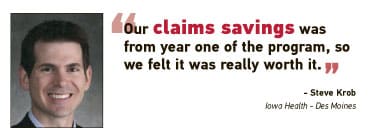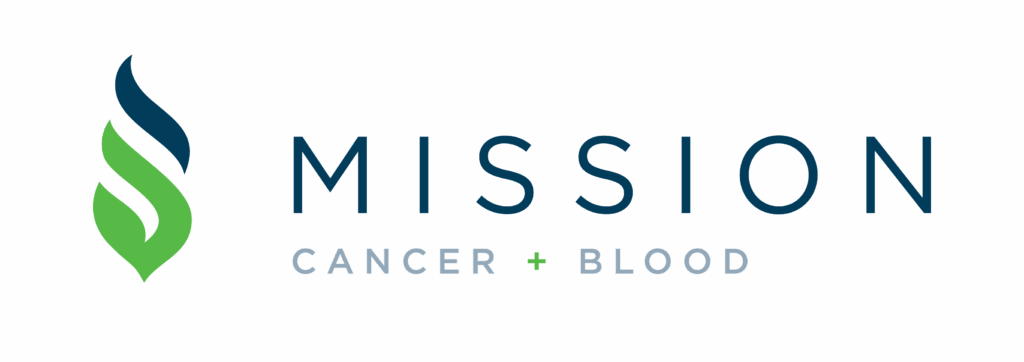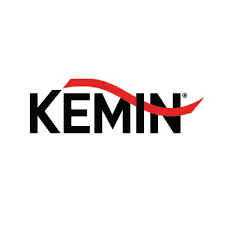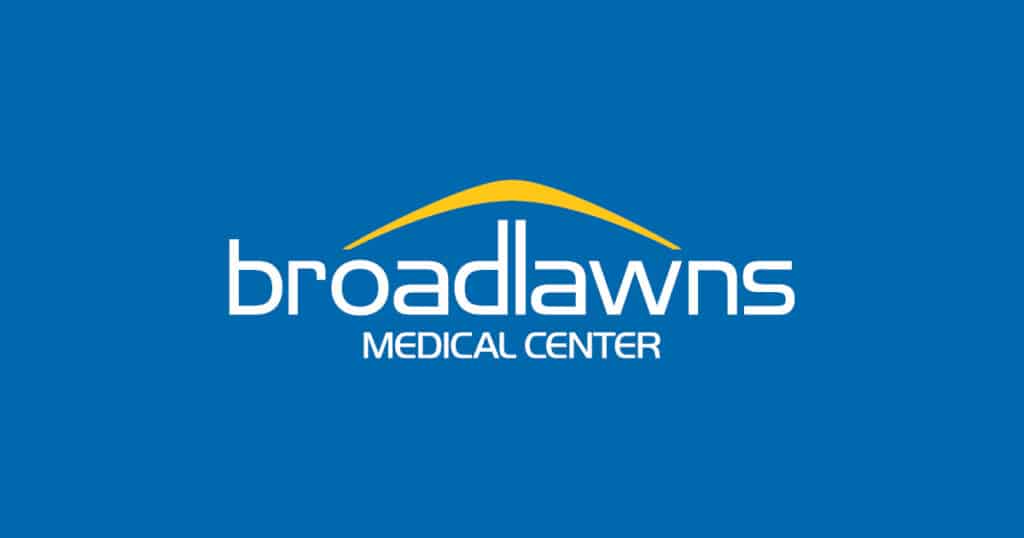Health coaches: the new company benefit
Mainstream Living reduced its health insurance premium increases to 1.4 percent last year


So Berg, CEO of Mainstream Living Inc., connected with the wellness coach program at Mercy Medical Center – Des Moines. After the nonprofit participated in the program for three years, the annual increases in its health insurance premiums began shrinking. Last year, Mainstream Living’s premiums increased by just 1.4 percent.
“It’s all a direct result of having our wellness program in place,” said Berg, who lost 30 pounds and was able to reduce the amount of insulin he takes for his diabetes as a result of participating in the program. He estimated about 150 of his organization’s 570 employees have gone through the coaching program, which they are referred to if they test high for two or more health risks.
Mainstream Living is among a growing number of Central Iowa organizations that are providing individualized health coaching programs to employees. Greater Des Moines’ two major health-care systems – Mercy and Iowa Health – Des Moines, are actively reaching out to businesses and nonprofit organizations to offer these programs as a way to lower health-care costs.
Here is a look at what the two wellness programs offer:
Mercy
Mercy’s individualized health coach program is a more advanced component of Mercy’s Workforce Health Initiative that began seven years ago, said Amy Ziegler, employer relations director for the initiative. “Most companies start with a health-risk assessment,” she said. “When I go back after a few weeks to present the aggregate results, I’ll mention the coaching, but usually that’s nowhere in their budget at that time because they’re just starting the wellness program. It’s really more of a second- or third-year tier. Most companies do not come out and do everything from the get-go.”
Mercy uses seven health coaches, who are based at its Quick Care clinics.
Here’s an example of how the program can work: One company with about 700 employees decided to focus on high blood glucose levels that can lead to diabetes and other health problems. An initial screening identified 54 employees with above-normal readings; each was sent a letter asking him or her to schedule an appointment with a health coach. After that initial coaching session, each person had three follow-up visits he or she could schedule.
Pricing for the programs vary based on the services offered. A baseline program known as “Healthy You” costs $3,000 and provides coaching for 20 people.
“We really try to tailor it for our employers,” Ziegler said. “For instance, if an employer really wants to do the metabolic syndrome (obesity) program for 12 weeks but they just don’t have the funds, we’ll tailor that down to fewer sessions.”

Iowa Health – Des Moines’ health coach program also begins with a health-risk assessment of employees, which includes a preliminary coaching session of 20 to 30 minutes with each employee who is screened, said Della Guzman, one of Iowa Health’s seven health coaches.
“Then if the company wishes to buy the coaching portion, we come back to that particular company,” she said. “We follow up with each individual’s option (for contact with the health coach) – either by telephone, in person or Web-based.”
Iowa Health began offering health coaching services to its own employees five years ago. It began offering it to Greater Des Moines businesses three years ago.
The coaching programs offered by Iowa Health also are priced on a per-employee, per-service basis, said Steve Krob, who markets the programs to employers.
“Nationally, we’ve seen it range from $45 to $100 per visit per employee,” he said. Iowa Health’s programs range from about $20 to $30 per employee per visit. “There’s a lot of variance and I think the market is still trying to determine the level,” he said. “We try to package it as much as we can to make sure it’s cost-effective.”
Based on results from its internal employee coaching program, Krob said, Iowa Health’s return on investment for the program ranges from $3 to $6 in savings for each dollar spent. An intensive 10-month coaching program for employees with the greatest health risks includes a two-year follow-up period; about 5 percent of employees currently participate. “We’re pretty sold on coaching and its impact on employees at Iowa Health,” Krob said. “Our claims savings was from year one of the program, so we felt it was really worth it.”
Both Iowa Health and Mercy officials said most employers offering health coaching allow workers to schedule their appointments during office hours.
Additionally, when the employer covers the full cost of the program, a majority of employees tend to participate, Mercy’s Ziegler said.
Also, “if we promote it a lot as part of the screening, participation is usually pretty high,” she said. “If it’s just kind of an afterthought and something that’s just offered to them, it’s a lower participation rate, obviously. I think our goal is to really prepackage it and make it part of the screenings.”
At Mainstream Living, Berg requires employees who are recommended for coaching to participate as a condition of their insurance benefit. Employees pay just $35 per month for individual coverage or $50 for family coverage. “So if we’re going to supplement their premiums, then we’re going to require people go through these classes,” he said. “We have had some pushback on that, but once they start on it, they think it’s a good thing.”











